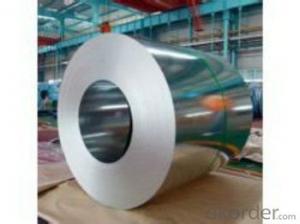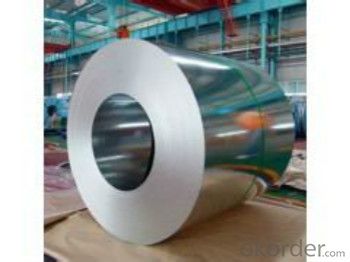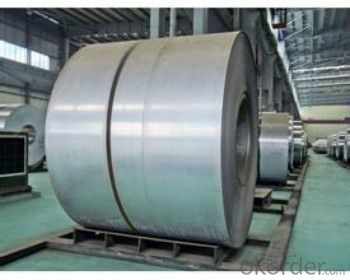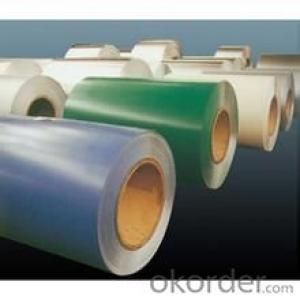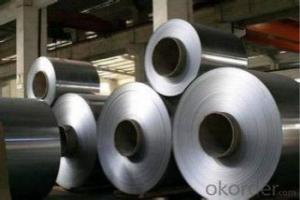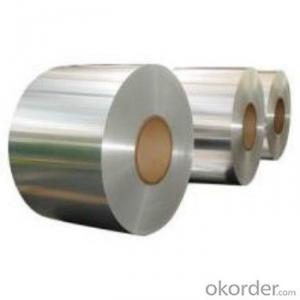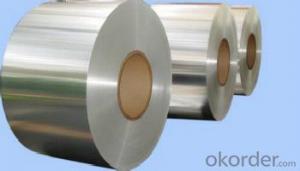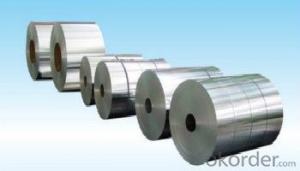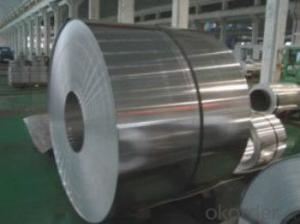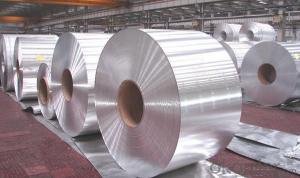Aluminum Coil for Gutter Machine - Mill Finished Aluminium Coil AA3105 Temper H14
- Loading Port:
- Shanghai
- Payment Terms:
- TT OR LC
- Min Order Qty:
- 5 m.t.
- Supply Capability:
- 4000 m.t./month
OKorder Service Pledge
OKorder Financial Service
You Might Also Like
Specification
1. Aluminum Coil Description:
Aluminum coil, is a rolled product, produced in a coiled form of continuous strip, and having an ID (Inner diameter) and OD (Outer diameter).Common alloy coil are used for a wide variety of applications, alloy 1050, 1060, 3003, 3105, 3005, 5052, 5754, 5083, 6061, 8011, 8021, and so on, in thickness from 0.0065-7mm, in width from 300- 2200mm.
Aluminium coil can be deep processed into aluminium foilstock, aluminium circle, aluminium coating products, aluminium ceiling, aluminium plastic composite panel (APCP), aluminium embossed products, etc.
2.Main Features of the Aluminum Coil:
• Great ductility
• Heat conductivity
• Anti-corrosion
• Moisture resistanve
3.Aluminum Coil Images
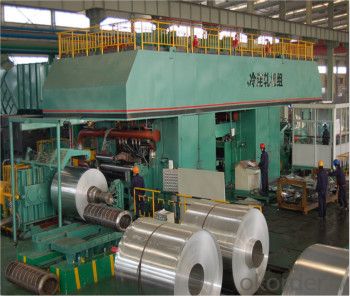
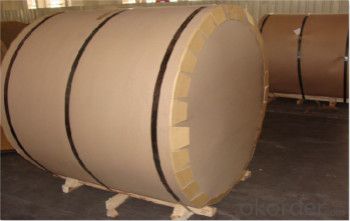
4.Aluminum Coil Specification
Aluminum Coil/Sheet | |
Main Specification | |
Alloy | AA1xxx (AA1050, AA1060, AA1070, AA1100 etc.) |
AA3xxx (AA3003, AA3004, AA3005, AA3105 etc.) | |
AA5xxx, AA6XXX (AA5052,AA5083, AA5754, AA6061, AA6062 etc.) | |
AA8xxx(AA8011, AA8006, AA8079 etc.) | |
Temper | H14,H16, H18, H22, H24, H26, H32,O/F |
Thickmess | ≥0.2mm |
Width | 30mm-2100mm |
Standard | GB/T 3880-2006 |
Special specification is available on customer's requirement | |
5.FAQ
We have organized several common questions for our clients,may help you sincerely:
(1) How to guarantee the quality of the products?
We have established the international advanced quality management system, every link from raw material to final product. we have strict quality test; we resolutely put an end to unqualified products flowing into the market. At the same time, we will provide necessary follow-up service assurance.
(2) MOQ?
For trail order, we accept 5 MT.
(3) Payment term?
30% deposit, balance against the BL copy; 100% L/C at sight
(4) What is the delivery time?
Depends on actual order, around 30 to 35 days
- Q: The canoe is aluminum. It has some paint remaining on it from what i am assuming is the original factory paint. The paint is just in patches, so my question is do i sand only where the paint is, or the whole canoe? Will sanding the aluminum damage it? Or should I not sand it at all, and just use paint stripper? After getting the old paint off, what kind of primer should i use? or is it not necessary to prime? What kind of paint should I use? I plan on it being multi tone(a leafy camo, of olive drab, flat black, and a gray tone).
- Painting Aluminum Canoe
- Q: Why does aluminum foil burn in the microwave but not in the oven?
- an oven uses heat only. microwave uses a different form of energy.
- Q: so i've been using natural deodorants that don't have aluminum, but they only work for a little while. i've heard that aluminum may cause Alzheimer's, and i have a history of Alzheimer's. do you know of any web sights that can confirm/deny this? or if you know of any deodorants that work really well that don't have aluminum! this is really getting annoying
- I okorder , not an antiperspirant. So it doesn't block the sweat glands and until my body adjusted I would say that I sweated more. However the odour was eliminated effectively. The product is a solid stick of deodorant and the first one lasted me 6 months! My wife likes it because she can put it on straight after shaving and it leaves her armpits lovely and soft and smooth.
- Q: Can aluminum coils be used in the production of aluminum composite walls?
- Aluminum composite walls can utilize aluminum coils for production purposes. To construct these walls, a layer of polyethylene is typically sandwiched between two aluminum sheets. Initially, the aluminum coils undergo processing to transform into flat aluminum sheets, which then function as the outer layers of the composite wall. During the manufacturing process, the coils are unravelled and flattened to achieve the desired width and thickness of the aluminum sheets. These sheets possess superior strength, durability, and resistance to weather conditions, making them an ideal choice for aluminum composite walls. Moreover, the utilization of aluminum coils enables efficient and cost-effective production since they can be easily processed and moulded into the required dimensions.
- Q: What is the typical thickness of aluminum coils?
- The typical thickness of aluminum coils can vary depending on their intended use and application. However, in general, aluminum coils are available in a range of thicknesses, typically ranging from 0.006 inches (0.15 mm) to 0.25 inches (6.35 mm). The specific thickness required for a particular project or industry will depend on factors such as the desired strength, flexibility, and weight of the aluminum coils.
- Q: I would like to know why the ionic substance aluminium oxide doesn't dissolve in water.
- It does dissolve, but only slightly. It has a solubility of about 0.0001 under atmospheric pressure, it doesn't dissolve because the aluminium is extremely strongly bonded to oxygen, so it can't dissociate very much at all. If you want to dissolve aluminium oxide, you should use an alkaline solution.
- Q: metals an aluminum can is made of, cast aluminum, 6160 aluminum, sheet aluminum
- the aluminum is alloyed with various metals to change the characteristics of the aluminum the link below shows a table showing the various chemical/metals added to aluminum to make different alloys
- Q: Are aluminum coils suitable for high-temperature roofing applications?
- No, aluminum coils are not suitable for high-temperature roofing applications.
- Q: Can the little can opening cap things on an aluminum can be recycled? My friend told me if you fill a two liter bottle with them you can get loads of cash. Is this true?
- Of okorder .
- Q: Can aluminum coils be used for nameplates and labels?
- Indeed, nameplates and labels can utilize aluminum coils. Aluminum, being a versatile material, presents numerous benefits in this regard. Notably, its lightweight nature coupled with its durability renders it suitable for diverse applications. Furthermore, aluminum boasts exceptional resistance to corrosion, making it an excellent choice for outdoor usage or environments with high humidity levels. Moreover, aluminum lends itself easily to stamping, embossing, or engraving, thereby facilitating the creation of intricate designs and detailed text. Additionally, it is feasible to apply coatings or anodize aluminum coils to augment their visual appeal or provide added protection. All in all, aluminum coils offer a dependable and cost-efficient solution for nameplates and labels.
Send your message to us
Aluminum Coil for Gutter Machine - Mill Finished Aluminium Coil AA3105 Temper H14
- Loading Port:
- Shanghai
- Payment Terms:
- TT OR LC
- Min Order Qty:
- 5 m.t.
- Supply Capability:
- 4000 m.t./month
OKorder Service Pledge
OKorder Financial Service
Similar products
Hot products
Hot Searches
Related keywords
